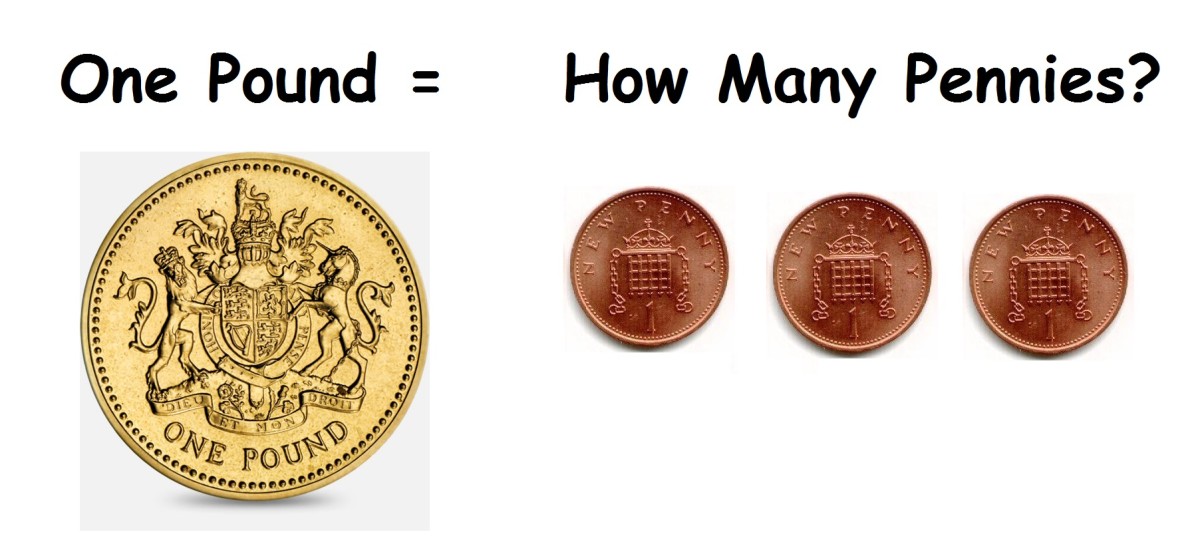How Businesses Can Save Money By Using Eco Friendly Business Solutions
HOW TO SAVE MONEY AND SAVE THE ENVIRONMENT AS A BUSINESS
These are simple, no-brainer ideas that can save you money. It might appear that the savings are minuscule but over time, pennies add up to dollars.
In terms of cutting wasted expenses and protecting the environment, this also gives you a good selling point for your company by being concerned about the impact of businesses on the environment.
These are also extremely easy to implement changes that involve extremely little effort.
ECO FRIENDLY MONEY SAVING TIPS FOR BUSINESSES
Digital faxing. There are many reasonable services that are Internet based and cost pennies per day. There are even free services.
How do you save and protect the environment? You are conserving paper which is a huge expense and a big drain on the environment. Consider the staggering fact below on how many trees are lost due to the demand for paper in North America.
You now have no need for a fax machine that can break down and need repairs. Faxes are easily received on email. Most services allow you to store received and sent faxes on their website for easy retrieval if needed.


MORE MONEY SAVING IDEAS FOR BUSINESSES THAT SAVE THE ENVIRONMENT
Do you really need to print it? Consider that it is estimated that 50% of the trees in North America are cut down to fill the demand for paper. This also creates fewer habitats for wildlife and also costs energy in its production and involves the use of a multitude of chemicals.
How do you save and protect the environment? By not printing emails or files unnecessarily. By storing them as digital files, you cut the use of paper drastically. By printing fewer documents, your usage of ink cartridges markedly decreases and you use less power.
Recycle or re-ink your cartridges and never throw them in the garbage. Plastic and biodegradable are not synonymous.
Consider doubling up. Set your printer to print both sides of the paper and you will obviously save half of the paper you used before.
How do you save and protect and environment? By cutting your paper consumption in half. Again, consider not printing email messages and even putting a statement on your emails going out requesting the recipient to not print the email to save on paper.
Turn off your computer at night and on weekends...or any time not in use.
How do you save and protect the environment? It is projected that one computer left in sleep mode overnight and every weekend of the year costs $41 per year to power. This is as quoted by Mark Pierce, from Cornell's College of Human Ecology. He quotes a figure of $57 per year to run a computer on weekdays. Leaving it plugged in but shut down, you'll spend $3 per year powering the monitor's standby mode when it's not in use. This is for one computer. You can multiply the cost times the computers in an office to see the impact this has on not only the pocketbook but also the use of energy. Long-term cost savings (and less wear and tear on your computer) and the reduction in coal-fueled power plants for electricity outweigh the simple effort of turning off computers, monitors and printers not in use. It also protects the environment in terms of wildlife affected by our huge need for power. It is helping to preserve ecosystems.
Turn off the lights! It's a simple concept and one that was drilled into our heads as kids. Everything you can turn off that is not in use saves you money.
How does it save money and protect the environment? Everyone's electricity charges are different but if you consider these facts - 1 kilowatt hour is the amount of energy it takes to power 1000 watts for an hour. So in the case of a 60 watt light bulb, how many hours does it take for the light bulb to use 1 kilowatt hour of electricity? (Divide 1000 by 60). This is about 17 hours.
If an electric company charges 10 cents per kilowatt hour and a light bulb in an office is on for 15 hours when the office is unoccupied (5pm-8am), leaving a light on overnight is using about 1 kilowatt hour of power. So that would be 10 cents....but that is for only one light bulb.
Consider how many light bulbs are left on for how many hours and consider the savings. But also consider the environmental impact of needing more and more fossil fuels to satisfy our power needs. If we conserve, we are causing less environmental destruction that is caused by mining.
Also consider this....light bulbs contain mercury which is toxic and can damage the environment. Using less means less money outlaid but it also means less mercury in our landfills.

SAVING THE ENVIRONMENT IN BUSINESS AND SAVING MONEY AT THE SAME TIME
There are hundreds of other ways for businesses to protect the environment and save money but these tips are generic and can apply to small businesses to huge corporations.
Isn't one of the primary goals of any business to make money? If this is true, then saving tips such as these are great resources to employ.
However, the bigger picture in terms of protecting the environment, preserving it or doing "no harm" is vital to our survival.
We can also employ these practices in the home office setting or on a personal level. A penny earned is a penny saved and any step forward is a good one in terms of saving our environment.
More Money Saving Ideas by Audrey Kirchner
- Best Tips And Tricks On Bargain Shopping And The How...
HOW TO SAVE MONEY There are some rules across the board that apply to everything you purchase over your lifetime. I don't care if it's a new car or if it's new underwear. There are ways to save... - Cutting Costs On Home Maintenance: How To Save Money...
HOW TO SAVE MONEY PAINTING YOUR HOME EXTERIOR Any time you have someone do a job for you, youre going to end up paying at least twice as much for it. Painting the exterior of your house is such a... - Money Saving Tips For Computer Users: How To Save Mo...
HOW TO SAVE MONEY ON COMPUTERS Computers are generally a large expense and one that weighs heavily on your mind when you go to purchase one. Especially if you're one of those people who doesn't buy a... - Money Saving Tips For Seniors: How To Save Money By ...
Aren't these old world fellows adorable? I'll bet they know the value of a dollar and then some! But for the rest of us.....there are a lot of ways that seniors can save money. As in most things in... - Saving Money On Moving: How To Save Money By Moving ...
HOW TO SAVE MONEY ON A MOVE - MOVE YOURSELF! I've actually moved several ways from place to place over the years. For a cross town move to a new apartment, I've loaded up my car and struggled with... - How To Save Money By Bargain Shopping: Bargain Shopp...
HOW TO SAVE MONEY BY BARGAIN SHOPPING These days, people are really into saving money and why not? It seems to take us more and more time to make money and less and less time to spend it as prices... - Frugal Living Tips And Advice: How To Save Money By ...
HOW TO SAVE MONEY BY MAINTAINING YOUR HOUSE Want to avoid costly home repairs? While regular home maintenance won't always guarantee that you'll have a future of no home repairs to budget for, studies... - Saving Money On Books And Videos: How To Save Money ...
HOW THE LIBRARY CAN SAVE YOU MONEY Personally, I could live in a library. Growing up, we had TV but it was only sporadically for one reason or another. Books became my best friend at a very... - Money Saving Tips For Middle Age: How To Save Money ...
Outlining a living well is a simple task but one that many people, especially seniors, put off. Why? Because no one likes to think about dying. Do you think it's possible to save money by simply having a... - How To Save Money On Gasoline: Cut Costs At The Pump...
HOW TO SAVE ON GASOLINE Surprisingly, there are some little known facts about gasoline that consumers should know. In a sagging economy, gasoline has become a major purchase these days and knowing the... - Money Saving Tips For Computer Users: How To Save Mo...
HOW TO SAVE MONEY ON COMPUTERS Computers are generally a large expense and one that weighs heavily on your mind when you go to purchase one. Especially if you're one of those people who doesn't buy a... - How To Save Money On Just About Everything: Saving M...
SAVING MONEY ON ENTERTAINMENT EXPENSES If you're like most folks today, you're trying your best to cut costs wherever you can to beat the high cost of living. Entertainment expenditures sometimes slip... - Cost Saving Tips On Decorating: How To Save Money On...
HOW TO SAVE ON HOME DECORATING Whether you live in an apartment or you own a 3,000 square foot home, home decorating can really get expensive. If you have a huge budget for home decorating,... - How To Save Money on Cosmetics: Saving On Cosmetic P...
SAVING MONEY ON MAKEUP AND COSMETIC PRODUCTS There are ways to save on basically anything you buy. That said, cosmetics are no different. And why pay full price for anything is my constant question. ... - Saving Money On Painting: How To Save Money On Do It...
HOW TO SAVE MONEY WHEN YOU PAINT If you want to paint and also save money, there are many ways that you can do this. Consider this fact. Someone painting a room for you can charge anywhere... - Energy Cost Saving Tips: How To Save Money On Window...
HOW TO SAVE MONEY ON DO-IT-YOURSELF WINDOW TREATMENTS The cost of decorating your home can be absolutely overwhelming. It seems today, the price of everything touched by human hands is over the top in... - Cooking Tools And Equipment: How To Save Money On Co...
HOW TO SAVE MONEY ON COOKWARE If you're a cook, no matter what level, you know that having the proper equipment can make you or break you in the kitchen. Learning to get the best price on things... - How To Save Money On Home Decorating: Do It Yourself...
SAVING MONEY ON DECORATING Lets face it.....decorating costs money. If you dont have a lot of money, can you still decorate and have your home decked out the way you want to? Of course you can! ... - Advice On How To Save Money On Clothes: Tips And Tri...
HOW TO SAVE MONEY ON CLOTHING Clothing is one of those necessities that we all seem to spend money on. But do we always get the best prices? Buying clothes is sometimes based more on want than true...










